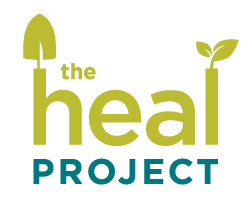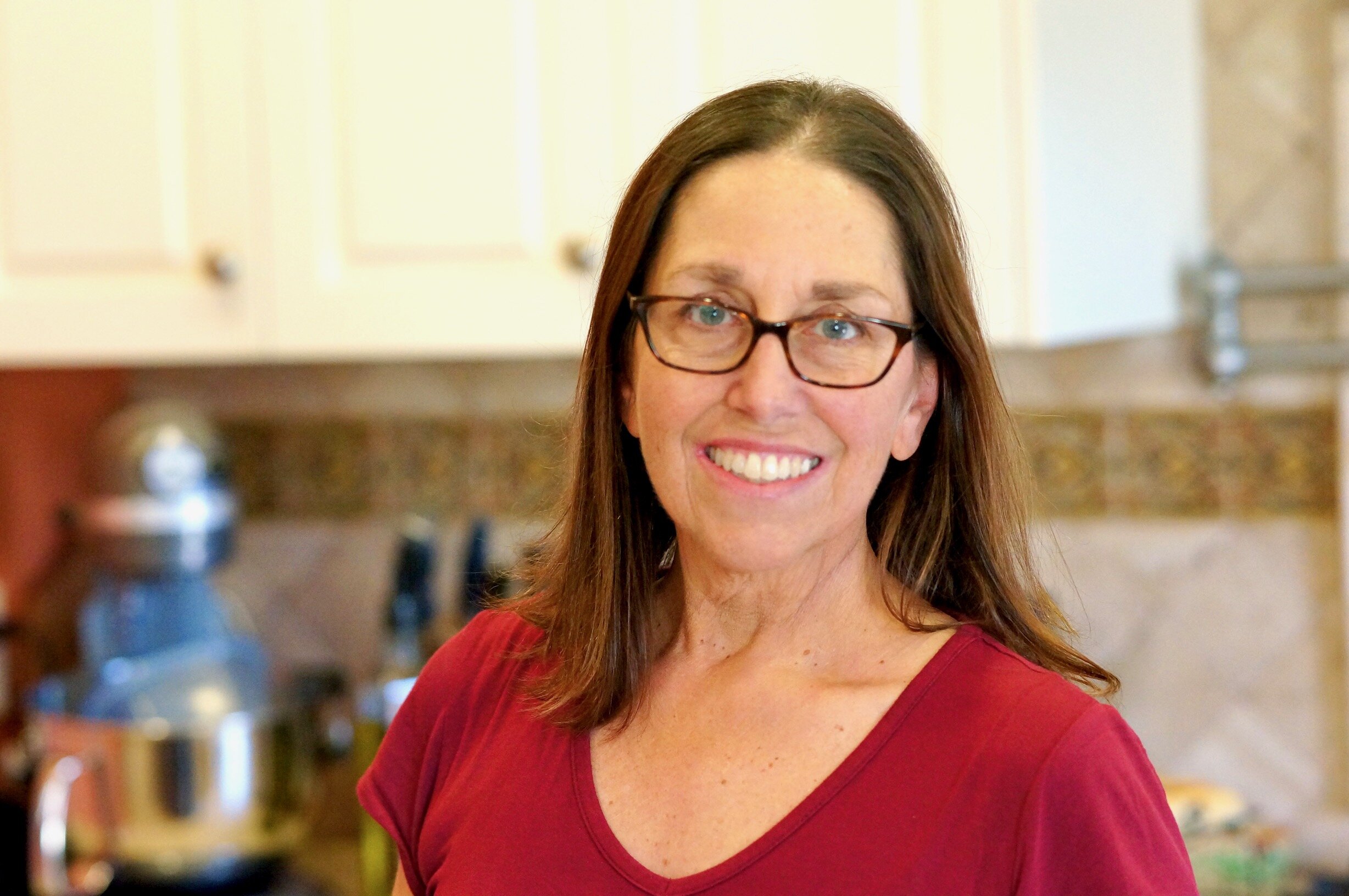Interviewed by Chapin Dorsett, The HEAL Project’s Operation Manager
C - So, Amy, what was it that got you interested in gluten-free cooking and baking?
A - About 13 years ago, my daughter was experiencing severe skin issues. A friend suggested that I try a naturopath doctor because the regular doctors that we had been seeing hadn’t come up with any answers. After doing some testing, the naturopath suggested that we take out gluten, dairy and eggs from her diet, and I had to quickly adapt to a new cooking style. I’ve always been a chef, but I went in blind to gluten-free cooking. I’ve learned a lot along the way, and I get better the more I do it. I’ve also learned about other people’s intolerances, which has given me a new sense of empathy for others.
C - Now that we’re into our fifth month of the pandemic, can you reflect on how the quarantine has impacted your relationship with food?
A - During the quarantine, I’ve recognized how important it is to make sure my family is eating local, nutritious food, and also to help support others as best as I can. Prior to the shelter in place, I was pretty busy with managing the activities of my kids, my work, and organizing social events. When everything just stopped, I reevaluated a few things. I decided to replant our back garden. I went to the farmers’ market and bought starter plants from Simm’s Organic as well as Fly Girl Farms. I made going to the market a priority and since we were always home, it was much easier. I think part of it was the fact that we couldn’t go anywhere, and thus had to rely more on local food. I’ve gained more of an appreciation for what was available. With health in general really coming to the forefront during these times, it has been even more important for me to make sure I keep my family healthy, which I’ve been doing by focusing on local, nutritious fruits and vegetables.
C - Tell me about your garden!
A - My family had a garden a while ago, around 2008, but we didn’t take care of it and it got overgrown. It kind of became a cat and raccoon box that my husband would occasionally put potatoes into. When quarantine hit there were a lot of unknowns and nervous feelings. There was the fear that there might not be food, which was really scary. Things look different now, of course, but initially my family felt like we should have one secure food source, just in case. So we cleaned the box up, got starters, and tried a few different things. It looked so small in the beginning and we thought we wouldn’t grow anything, but all that sun we had really helped. The kale, chard, herbs and zucchini are all doing great!
C - It sound like you spend a lot of time thinking about and working with food. Do you have a food philosophy?
A - My food philosophy is to eat what’s good for your own body. For me, it’s eating gluten, soy and dairy-free. For my daughter, it’s gluten-free. For others it could be peanut-free. Understanding what your body needs is crucial, as is choosing to give your body things that will nourish it. For instance, I like pizza, but I don’t know that it nourishes my body. You have to find a balance between what your body needs and what you like, or what your brain wants. Even something like organic foods—most of us know it’s what we need, but our brains have to tell us that it’s worth it or we won’t go our of our way to buy it.
C - I see from your website that you received an award from San Mateo County for participating in the “As Fresh As it Gets” program. Can you tell me about your involvement with that program?
A - I think that focusing on vegetables and local produce should be part of what everyone does, so it was easy for me to get onboard with the “As Fresh As it Gets” program. I was a personal chef and taught cooking classes for five years, and I always bought local produce. It was just part of what I did. I got a cottage food operation permit last October, and I’ve begun to bake more to sell at the farmers’ market and for my customers who can’t travel to bakeries. Now with the cottage food operation and cooking for my family, using fresh, organic produce whenever I can is an important part of what I want to provide to others. I’ll go to the farmers’ market, buy some strawberries, and think, what am I going to cook next? Oh, strawberry cupcakes. Before the pandemic I would go to New Leaf, get kale and eggs and think, oh, I can make a crustless quiche. A big part of how I cook is using local farms when I can, which has two big benefits: supporting local farmers and eating food from close to where I live.
C - So your gluten-free baked goods operation at the Pacifica farmers’ market is pretty new! What does your preparation look like for market days?
A - I got a cottage food operations permit in 2016 to try to sell baked goods at the Half Moon Bay farmers’ market, but I didn’t have as much expertise in baking at that time, my kids were younger, and I was still working with personal chef clients—it was too much. When the shelter in place started this year, I wasn’t driving my kids anywhere anymore, so I had more time. I focused on improving my recipes and finding out what kinds of goods people wanted. At the market one day, I spontaneously asked Erin Tormey (Coastside Farmers’ Market founder) if there was space for a new vendor. She said that there was space at the Pacifica market, so I went to look at it and thought, okay, I think I can do this. The first day was really frantic. When you’re baking, especially gluten-free, it’s important that everything is fresh. You have to bake it the day of or the night before. After the first couple of market days, though, I learned that I can measure all of my dry ingredients out beforehand and bake a couple of products earlier as well. I generally take three days to prep for market day so that I can give people variety. I go to the Half Moon Bay market on Saturdays and then choose my recipes for the Wednesday Pacifica market based on what I’ve pick up there. I’ve been doing a lot with strawberry, peaches and basil lately. I’ve also been doing flavors with fruit and herbs, like strawberry basil cupcakes, peach mint scones and olallieberry mint scones. That part is fun for me—rather than baking the same products each week, I’m all about what’s fresh and different. And then at the Wednesday markets I look at what people are buying and asking for, and start thinking about what I’ll make for the next week. I don’t necessarily advertise the gluten-free aspect of my products because I feel that the baked goods stand on their own. Some people don’t even know that they’re gluten-free!
C - Is there anything else you wanted to leave this conversation with?
A - It’s very important right now for all of us to try to help each other in any way we can. I’m not talking about me or convincing people to buy my food. I’m talking about the farmers and people working hard to keep their businesses up. The more we can do to keep money in the community, the better. I’m appreciative of people buying products from me, but what I really want is for people to come to the farmers’ markets and help out the other vendors that are there. I’m trying to spend my money more consciously now than I did before. I didn’t used to buy much takeout food, but now I’m getting more takeout to support local restaurants. Money that I wouldn’t spent over the hill, I’m now spending locally with more purpose. I think many people around here have been doing that as well, and it’s been a big change. We’ve always seen the need to buy locally, but the pandemic has been a real eye-opener. Life is very fragile. You go day by day, but we’ve all had to take a step back and evaluate what’s important. Food is important. Keeping your immune system healthy is important. If I put out fresh food from the market that’s colorful and pretty, my kids will eat it. People think that their kids won’t eat vegetables or that it’s a lot of work to prepare, but getting sick is also a lot of work, and I think it’s better to the preemptive work than the post.
—
Amy has over 25 years of cooking experience as a restauranteur, caterer, and food service manager. She was trained at Cornell University’s School of Hotel Administration, a world-renowned, ivy league hospitality school. Besides cooking, Amy enjoys spending time and traveling with her family. She tries to exercise regularly to maintain a healthy lifestyle and participates in various fundraising efforts for education.







